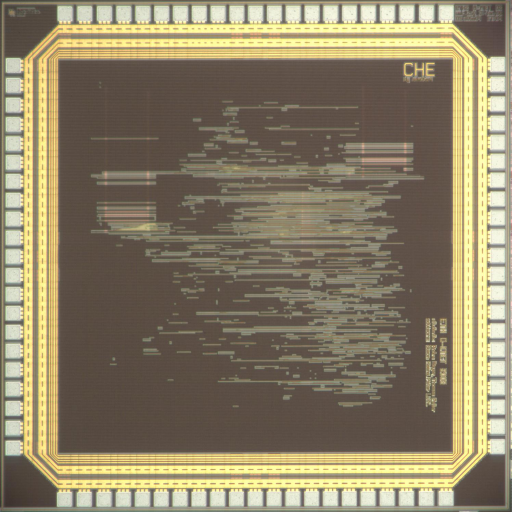The IIS Chip Gallery
CHE (2006)

by

| Application | Communication |
| Technology | 250 |
| Manufacturer | UMC |
| Type | Semester Thesis |
| Package | LCC84 |
| Dimensions | 2500μm x 2500μm |
| Gates | 60 kGE |
| Voltage | 2.5 V |
| Clock | 142 MHz |
Current single-antenna wireless LAN standards, as well as future multi-antenna (MIMO) systems, as defined for example by IEEE 802.11n, rely on orthogonal frequency division multiplexing (OFDM) modulation. For coherent detection of the received signals, channel estimation is required at the receiver. For this purpose, known pilot sequences are transmitted.
The channel's frequency response must be estimated for each OFDM data subcarrier. Since the degrees of freedom in the wireless channel, given by the length of the time-domain channel impulse response, are usually less than the number of OFDM subcarriers, the estimated frequency- domain channel coefficients are correlated. This correlation can be exploited to improve the quality of the channel estimate. Unfortunately, the exploitation of this correlation requires costly signal processing that becomes even more complex when some of the OFDM subcarriers are turned off for spectral shaping, as specified in the IEEE 802.11a/g/n standards.
In view of MIMO, where the number of channels to be estimated increases with the number of transmit and receive antennas, low-complexity channel estimation algorithms for OFDM systems with virtual subcarriers are considered in this project. The focus is on robust channel estimation schemes not requiring a-priori knowledge of the wireless channel statistics.